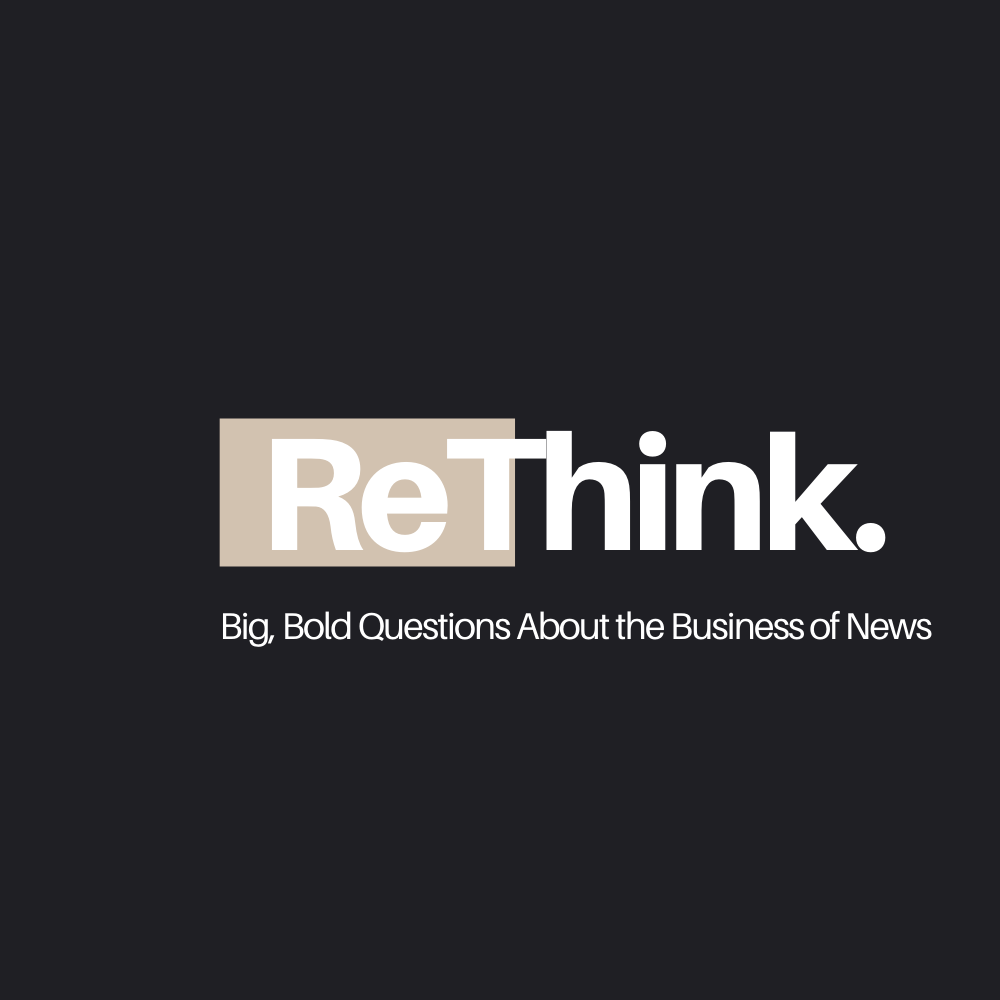Big, Bold Questions About the News Business
In Order to Build Better, More Sustainable News Organizations We Must Bravely Envision and Shape a Post-Corona Media Future
When the idea for this publication was initially conceived – about six weeks ago – there was no pandemic happening. And still, the media world was not entirely healthy.
While many organizations were pretending to be going “digital-first,” they were in reality still afraid to cut off old business models to invest in innovation.
In theory, we all knew we should have been rethinking our businesses more radically, but in practice, the daily grind of organizational politics and the difficulty of cultural change slowed us down.
Many news organizations pretended to value empathy and dialogue, while they still, in fact, promoted managers not prepared to lead in this way.
Way too many newsrooms were quite content with their flawed demographics, instead of honestly prioritizing diversity.
Too much of the content we’ve been producing was “nice to have,” instead of addressing existential needs.
And, in general, the “user” was still perceived as a rather strange part in the value equation, rather than being central to our mission and journalistic raison d’etre.
No Time to Lose
But now, with the Coronavirus crisis, these questions become even more urgent. While we are still grieving, dealing with losses and adjusting to a changing reality, we don’t have time to lose: To build better, more sustainable news organizations, we must bravely envision and shape a post-Corona media future.
This publication will focus on the business side of this vision: Surfacing sometimes unconventional, often disruptive, always diverse, mainly scaleable, frequently collaborative, predominantly global and - hopefully - regularly impactful ideas to rethink how the news business might design its future.
This blog is going to be a destination for bold questions and brave recommendations regarding the future of the news business.
Some Big, Bold Questions to Get Us Started
In order to find answers, we need to ask questions. So for this first post, I decided to list some of the ones I think are most important and urgent, and that we will be discussing in the months to come.
How might we build a better, more sustainable post-Corona media world?
Which passions and needs emerge or resurface through the crisis?
How can we use this trigger event to build - and keep - sustainable trust?
How might we facilitate a feeling of belonging through our journalism?
Is there a way to marry accessibility and paid content?
What would radical collaboration look like between media organizations?
How might we fundamentally reshape the demographics of our newsrooms to represent and attract underserved audiences?
How can we identify, cluster and address our communities in new ways to better serve them and build a business around them?
Can we rethink media entrepreneurship to better represent the passion economy?
What temptations and innovations do we have to say No to today to be stronger businesses tomorrow?
What would a transformation process look like that truly prioritizes culture change?
Which blue oceans do we need to explore outside of traditional media business models?
What if high-quality translation becomes a commodity and all content can be consumed by everyone, everywhere?
How might we recreate the TV bonfire experience for the digital age?
What if the niche is the new reach?
Which crisis consumption patterns and behavioral changes will become the new normal?
Is government and philanthropy money for the media good, bad, or both?
How do we redefine the ROI for media companies?
How radical do we have to act in sunsetting print or other declining business units?
Does the future of work still feature ‘organizations’?
How, if at all, might we de-commoditize content and rethink our potential for value creation?
Are we focusing too much on subscriptions?
How can we develop the leaders our organizations need in this time of insecurity?
What are the legacy behaviors, products, workflows or assumptions we need to, finally, let go of?
Is journalism a business, or is it a museum?
I am looking forward to exploring these - and other - questions around the business of news with you.

You want to give me feedback, ask a question or write a guest post? Please be in touch!



